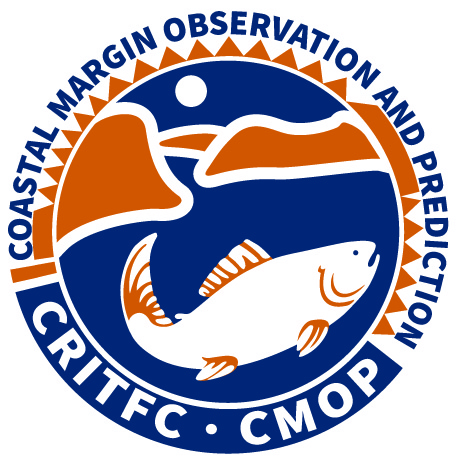Sensor Information:
We currently deploy two types of WET Labs sensors to measure CDOM fluorescence. These are summarized in the following table:
| Click sensor name for link to manufacturer website | WET Labs ECO FL (CDOM) | WET Labs WetStar | Turner Designs Cyclops 7 (CDOM) |
|---|---|---|---|
| Deployments | Saturn01 Saturn02 Saturn051 Saturn07 Glider |
Saturn01 Saturn03 Saturn04 Saturn07 |
Saturn02 Saturn07 Saturn09 |
| citation Wavelength | 370 nm | 370 nm | 325nm(120nm) |
| Emission Wavelength | 460 nm | 460 nm | 470nm (60nm) |
| Sensitivity | 0.09 ppb QSD | 0.100 ppb QSD | 0.1- ppb |
| Range | 0 – 500 ppb | 0-100, 0-250 ppb | 0-500, 0-3000 ppb |
| Sensor Format | Outward looking | Flow through | Flow through |
1 As part of a LOBO mooring
Data Units:
The sensors are factory calibrated against a quinine sulfate dihydrate solution, a fluorescent reference standard commonly used with CDOM sensors. The sensors are therefore reporting in QSDE (quinine sulfate dihydrate equivalents). It is important to note that CDOM concentrations in QSDE are not necessarily equivalent to the in situ CDOM concentrations in ppb.
QA/QC protocols:
Sensor performance is monitored with regular DI readings at Saturn-03 and Saturn-04 and with pre-deployment and post-deployment DI readings with sensors deployed at other stations. Instrument cross-comparisons in several reference standard solutions are also used to evaluate sensor calibrations. Differences in manufacturer calibrations over time, combined with individual sensor differences have led to significant variation in sensor responses in the same standard solution (both between sensors and for the same sensor over time). The reference solution measurements are used to scale sensor output to a single calibration allowing for the inter-comparison of data between different sensors/stations over time. In addition to applying scale factors to the data, corrections for any sensor baseline offset are also applied to the data. The offset estimates are typically based on readings in DI water (either pre-post deployment, or in situ). The PowerPoint presentation linked here and at the bottom of this page contains details on standard readings for the individual sensors and describes the data scaling process in detail. The majority of data were not scaled by more than approximately 10%. In most cases, scaled data are flagged as QL2 unless other considerations warrant a lower quality assignment. These scale factors and offsets, along with quality determinations and comments are provided in the table below.
CDOM QA/QC Archive
Overview: SATURN CDOM Sensor Performance & Data Scaling.pptx
| Link | Dates | Description |
|---|---|---|
| SATURN-01 | ||
| Calibration eval. | 8/2/12 – 12/1/16 | data scaling and quality evaluation |
| SATURN-02 | ||
| Calibration eval. | 4/24/12 -10/11/16 | data scaling and quality evaluation |
| SATURN-03 | ||
| Calibration eval. | 8/2/12 – 12/1/16 | data scaling and quality evaluation |
| SATURN-04 | ||
| Calibration eval. | 8/1/12 – 10/1/16 | data scaling and quality evaluation |
| SATURN-07 | ||
| Calibration eval. | 12/4/12 – 11/1/16 | data scaling and quality evaluation |
| SATURN-09 | ||
| Calibration eval. | 9/1/14 – 7/1/16 | quality evaluation |
